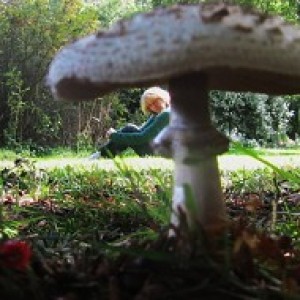The Life that I Have
His writing may be difficult to read, but it is boldly formed and holds beautiful sentiments.
He wrote to me frequently on postcards, sealed within envelopes, however it was not his writing that I fell in love with.
Nor was it because it was the first time I had met a man with a title - a real knight, a sir.
I had heard he was eccentric, but I had no idea how charming he would be.
After an initial business meeting he invited me to stay to lunch.
"My dining room is next door." He said as we walked to the hotel adjacent to his office.
He ordered lunch for both of us, " Two Bangers and Mash please." Offering me no choice.
He enthralled me with tales of his early life, his voice pure liquid gold, that I could have listened to ad infinitum.
He told me of his father's involvement with the resistance movement in France during the 2nd World War and then, looking straight at me he recited the following:
The life that I have
Is all that I have
And the life that I have
Is yours
The love that I have
Of the life that I have
Is yours and yours and yours
A sleep I shall have
A rest I shall have
Yet death will be but a pause
For the peace of my years
In the long green grass
Will be yours and yours
And yours
The hairs on the back of my neck were still standing on end with the intensity of the words when he asked:
" Do you know who wrote that?"
I confessed to knowing it from the film 'Carve Her Name with Pride' and said I would find out for him.
Today's photo is part of the thank you note he sent me for the following information I sent him.
The poem 'The Life that I Have' was written by Leo Marks on Christmas Eve 1943, not only as a tribute to his girlfriend who had just died in a plane crash in Canada, but also to encrypt messages to be carried by agents in the 2nd World War.
On 24 March 1944, the poem was issued by Marks to Violette Szabo, a French agent of Special Operations Executive who was eventually captured, tortured and killed by the Nazis.
It was made famous by its inclusion in the 1958 film about Szabo 'Carve Her Name with Pride', where the poem was said to be the creation of Violette's husband Etienne. In her 2002 biography Violette Szabo: The Life That I Have, author Susan Ottaway asserted that the poem was actually written for the 1958 movie.
For me this poem, that may have played its own role in the war remains a firm favorite of mine and a charming reminder of the man with the golden voice, who became a part of my life for far too short a period of time.
- 1
- 1
- Canon PowerShot SX210 IS
- 1/33
- f/3.1
- 5mm
- 500

Comments
Sign in or get an account to comment.


